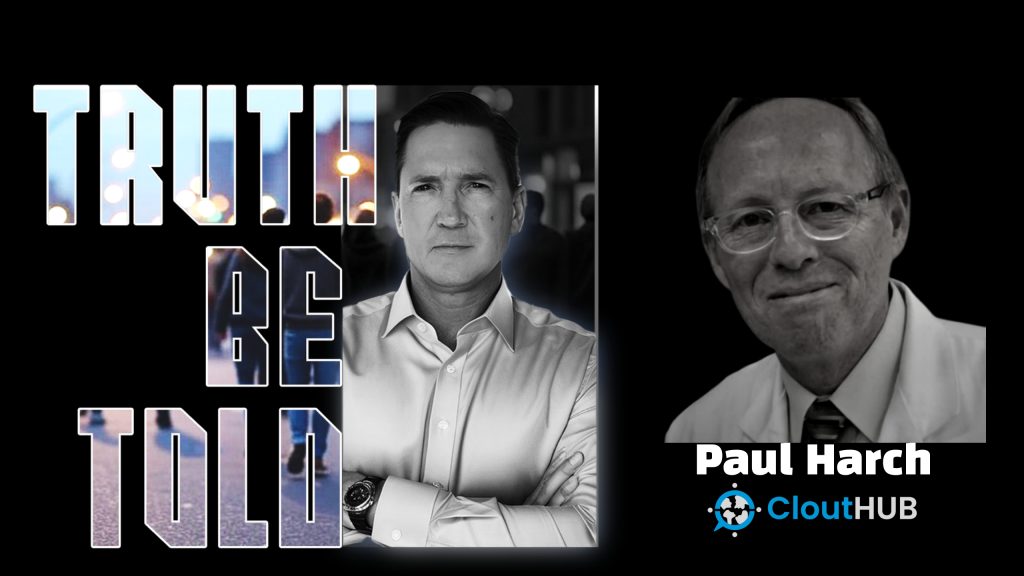Complex Regional Pain Syndrome Reflex Sympathetic Dystrophy CRPS/RSD
July 27, 2025Hyperbaric Oxygen Therapy’s Role in Stem Cell Mobilization and Implantation
August 24, 2025Inside HBOT: Dr. Paul Harch Reveals the Healing Power of Oxygen and Pressure
Monday August 18, 2025
In the latest episode of Truth Be Told, host Todd Callender sits down with Dr. Paul G. Harch, a world-renowned authority in Hyperbaric Oxygen Therapy (HBOT). Dr. Harch shares his pioneering journey in HBOT, discussing its transformative impact on neurological injury, trauma, and chronic conditions.
Who Is Dr. Paul Harch?
Educational and Professional Background
-
Medical degree from Johns Hopkins University School of Medicine (Magna Cum Laude, Phi Beta Kappa).
-
Bachelor of Science in Biology from UC Irvine (Magna Cum Laude, Phi Beta Kappa).
-
Former Director of University Medical Center’s Hyperbaric Medicine Department and LSU Hyperbaric Medicine Fellowship. Currently a Clinical Professor of Medicine in Emergency Medicine at LSU School of Medicine in New Orleans.
Pioneering HBOT in Neurological Medicine
-
Since 1989, Dr. Harch has applied HBOT protocols to diversify cases, including brain-injured divers, stroke victims, cerebral palsy, and autism.
-
Founded Harch HBOT, a private practice recognized for the largest documented experience in neurological HBOT worldwide—patients have traveled from over 50 countries for treatment.
Author of The Oxygen Revolution
-
In this comprehensive guide, Dr. Harch presents HBOT as a form of epigenetic therapy, revealing how oxygen under pressure regulates thousands of genes involved in healing, inflammation control, and tissue regeneration.
Dr. Harch’s Clinical & Research Contributions
Revolutionary Clinical Cases
-
Drowned toddler case: A two-year-old with severe brain injury showed remarkable recovery—speech, motor function, and cognition improved dramatically following normobaric and hyperbaric oxygen therapy under Dr. Harch’s care.
Neurological Conditions & Evidence Base
-
Treated over 100 conditions including stroke, dementia, autism, traumatic brain injury (TBI), and degenerative neurological disorders.
-
Conducted systematic reviews of HBOT in mild TBI/post-concussion syndrome, securing grade-A evidence support and advocating for broader insurance coverage.
-
Applied HBOT in thermal burns to reduce swelling and prevent progression to severe tissue damage, emphasizing early intervention efficacy.
Advocacy & Policy Influence
-
Presented his findings to the U.S. Congress on multiple occasions.
-
In March 2020, proposed HBOT for COVID-19-related pneumonia and Long-Haulers based on its immune-modulating and anti-inflammatory effects.
-
Supported legislative funding for HBOT for veterans with PTSD and TBI via Senate Bill 442 in North Carolina.
Key Takeaways from the Podcast Episode
-
A physician transformed by therapy
Dr. Harch’s own near-fatal accident during residency reshaped his career—leading him to HBOT research after real-world success treating divers with brain decompression injuries. -
HBOT’s cellular impact: oxygen as gene therapy
Exposure to pressure and oxygen triggers gene activity—reducing inflammation, promoting repair, and generating new nerve fibers—especially effective in white matter injuries like TBI. -
From skepticism to acceptance
Despite clinical success, the medical community was often hesitant. Dr. Harch countered this by building rigorous research and documentation to substantiate HBOT’s value. -
A lifelong mission
He remains devoted to proving HBOT works—refusing to retire until this transformative therapy reaches mainstream medicine.
Why This Matters for HBOT.com Readers
Dr. Harch exemplifies the power of HBOT to heal complex neurological injuries and chronic conditions. Through clinical innovation, scientific validation, and public advocacy, he has elevated HBOT from experimental therapy to a life-changing modality—with undeniable evidence and human stories to back it up.

